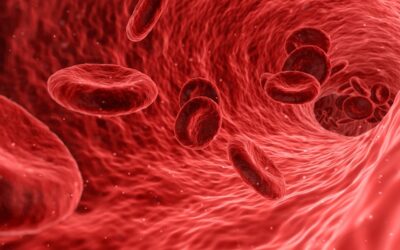Discrepancies between product labeling and a dietary supplement’s actual ingredients are a recurring theme in the United States. A new study finds that galantamine, a plant-derived compound used to treat dementia associated with Alzheimer’s disease, is no exception.
Pieter Cohen, a professor and primary care physician at one of Harvard University’s teaching hospitals, Cambridge Health Alliance, has been studying dietary supplement safety for years. He and his collaborators have scrutinized the contents of multiple supplements on the market, from melatonin and probiotics to purported “brain-boosting” products and berberine, known as “nature’s Ozempic”.
What makes his galantamine study unique is the direct comparison of a generic prescription drug with an over-the-counter supplement. “It was an unusual example where the actual active drug is being sold simultaneously in the same dosages as a prescription medication […] and a dietary supplement,” said Cohen in a phone conversation. “I haven’t found any research before that compares the same drug being sold under those two regulatory frameworks and allowing us to compare it side by side.”
In the United States, the standards set by the Food and Drug Administration (FDA) for prescription medications are much higher than those for dietary supplements. “If you have a prescription medication, you can only advertise it based on evidence in large human trials and then letting the FDA know that this is what you’re doing or getting FDA’s permission,” explained Cohen.
“Then you can advertise it,” he continued. “When it comes to supplements, manufacturers are able to advertise that they will have just about any effect on the human body, like ‘maintain your immune system’, or ‘improve your brain health’, or ‘maintain normal sugar levels’. You name it, as long as they just stick to [vague] language like that.”
This leniency is a legitimate cause for concern. “The problem is that supplements are actually health products specifically formulated to have effects on the body,” Cohen said. “They have powerful chemicals in them.”
The brains of patients with Alzheimer’s disease are deficient in the neurotransmitter acetylcholine, which is responsible for nerve cell communication. Galantamine prevents the enzyme acetylcholinesterase from degrading acetylcholine, improving cognition in some cases. But it neither cures the disease nor stops its progression.
“Galantamine has been studied carefully, and we know that it does work a little bit to help with memory in people with moderate, quite evolved Alzheimer’s disease at prescription dosages,” Cohen pointed out.
“But when it was studied in people who had less memory problems, and to try to see if it helps with memory—or if it helps those people with preventing Alzheimer’s—it doesn’t work,” he added. “Despite that, supplement manufacturers can promote these supplements as memory enhancers to just the average consumer.”
To determine how galantamine supplements compared with generic galantamine, Cohen and his collaborators tested ten brands of commercial galantamine sold online and eleven brands of generic galantamine sold as prescription drugs.
The generic drugs were labeled to contain 4, 8, and 12 milligrams of galantamine per tablet or capsule, while the supplements were advertised to contain 4, 6, 8, and 12 milligrams per serving. The researchers measured the amount of galantamine in each sample using ultrahigh-performance liquid chromatography and mass spectrometry techniques.
The results were interesting: The actual galantamine content in the generic drugs ranged from 97.5% to 104.2% of the labeled content—demonstrating proper quality control—while the galantamine content in the supplements was much more variable, ranging from less than 2% to 110% of their claimed amounts.
The researchers also tested the samples for bacterial contamination, isolating any microorganisms present and identifying them with the help of mass spectrometry and whole-genome sequencing. While none of the generic galantamine drugs contained microorganisms, three of the ten supplement brands contained a microorganism associated with diarrhea, Bacillus cereus sensu stricto. The researchers noted, however, that these levels were not high enough to be harmful.
In their paper, they mentioned that purchasing the products at only one time point was a limitation of the study. “The question is, does that inaccuracy also vary over time?” Cohen wondered. “If you bought the same brand two months later. When we bought it, let’s say it contained 30% of the galantamine. Could it contain 130% next time? That would be a very interesting question too.
“It’s just more of a snapshot of the world of galantamine rather than a real market evaluation of what’s happening over time with these products.” Cohen says he doesn’t plan to pursue that study—at least not with galantamine—but he does hope the current study results grab the attention of the FDA.
“I hope it’ll get galantamine on the FDA’s radar screen, and that they will make some changes that will hopefully make the galantamine situation safer,” he said.
Reference: Pieter A. Cohen et al., Accuracy of Labeling of Galantamine Generic Drugs and Dietary Supplements, Journal of the American Medical Association (2024). DOI: 10.1001/jama.2024.0328

















